Who knew you could build toys and do magic tricks while learning about chemistry and physics?! Through the unique experiments in this book, you can make a "genie" in a bottle, a flame that jumps, a toy electric motor, and more! Many experiments include ideas you can use for your science fair.
About the Author
ROBERT GARDNER is an award-winning author of over one hundred books for young people. He is a retired high school teacher of physics, chemistry, and physical science.

When you hear the word science, do you think of a person in a white lab coat surrounded by beakers of bubbling liquids, specialized lab equipment, and computers? What exactly is science? Maybe you think science is only a subject you learn in school. Science is much more than this.
Science is the study of the things that are all around you, every day. No matter where you are or what you are doing, scientific principles are at work. You dont need special materials or equipment, or even a white lab coat, to be a scientist. Materials commonly found in your home, at school, or at a local store will allow you to become a scientist and pursue an area of interest. By making careful observations and asking questions about how things work, you can begin to design your own experiments.
Perhaps you are reading this book because you are looking for an idea for a science fair project for school, or maybe you are just hoping to find something fun to do on a rainy day. This book will provide an opportunity for you to perform chemical magic tricks, build toys, and do some experiments at your local playground. For all of the experiments, you will discover the science behind what you are doing. You may be surprised that you can have fun and learn science at the same time. You can entertain others with the magic tricks described in this book. Along the way, you will learn about chemistry and physics.
Many of the experiments in this book may be appropriate for science fair projects. These experiments are marked with a symbol ( ) and include a section called Science Fair Project Ideas. The ideas in this section will provide suggestions to help you develop your own original science fair project. However, judges at such fairs do not reward projects or experiments that are simply copied from a book. For example, a model of a toy car, which is commonly found at these fairs, would probably not impress judges unless it was done in a novel or creative way. On the other hand, a carefully performed experiment to find out how the angle of incline affects the cars speed would be likely to receive careful consideration.
) and include a section called Science Fair Project Ideas. The ideas in this section will provide suggestions to help you develop your own original science fair project. However, judges at such fairs do not reward projects or experiments that are simply copied from a book. For example, a model of a toy car, which is commonly found at these fairs, would probably not impress judges unless it was done in a novel or creative way. On the other hand, a carefully performed experiment to find out how the angle of incline affects the cars speed would be likely to receive careful consideration.
All scientists look at the world and try to understand how things work. They make careful observations and conduct research about a question. Different areas of science use different approaches. Depending on the phenomenon being investigated, one method is likely to be more appropriate than another. Designing a new medication for heart disease, studying the spread of an invasive plant species such as purple loosestrife, and finding evidence that there was once water on Mars all require different methods.
Despite the differences, however, all scientists use a similar general approach to do experiments. It is called the scientific method. In most experiments, some or all of the following steps are used: making an observation, formulating a question, making a hypothesis (an answer to the question) and prediction (an if-then statement), designing and conducting an experiment, analyzing results and drawing conclusions, and accepting or rejecting the hypothesis. Scientists then share their findings with others by writing articles that are published in journals. Afterand only aftera hypothesis has repeatedly been supported by experiments can it be considered a theory.
You might be wondering how to get an experiment started. When you observe something in the world, you may become curious and think of a question. Your question can be answered by a well-designed investigation. Your question may also arise from an earlier experiment or from background reading. Once you have a question, you should make a hypothesis. Your hypothesis is a possible answer to the question (what you think will happen). Once you have a hypothesis, it is time to design an experiment.
In some cases, it is appropriate to do a controlled experiment. This means there are two groups treated exactly the same except for the single factor that you are testing. That factor is often called a variable. For example, if you want to investigate whether raisins will rise to the surface when placed in a carbonated beverage, two groups may be used. One group is called the control group, and the other is called the experimental group. The two groups should be treated exactly the same: The same number of raisins should be placed in the same amount of liquid, be kept at the same temperature, and so forth. The control group will be the raisins placed in sugar water, while the experimental group will be the raisins placed in ginger ale. The variable is carbonation. It is the thing that changes, and it is the only difference between the two groups.
During the experiment, you will collect data. For example, you might count the number of raisins that rise to the surface. You might time how long it takes for the raisins to rise. By comparing the data collected from the control group with the data collected from the experimental group, you will draw conclusions. Since the two groups were treated exactly alike, all the raisins in the ginger ale rising to the surface would allow you to conclude with confidence that it is a result of the one thing that was different: carbonation.
Two other terms that are often used in scientific experiments are dependent and independent variables. One dependent variable here is the rising of raisins, because it depends upon carbonation. Carbonation is the independent variable (it doesnt depend on anything). After the data is collected, it is analyzed to see whether the hypothesis was supported or rejected. Often, the results of one experiment will lead you to a related question, or they may send you off in a different direction. Whatever the results, there is something to be learned from all scientific experiments.
Science fair judges tend to reward creative thought and imagination. However, it is difficult to be creative or imaginative unless you are really interested in your project. If you decide to do a project, be sure to choose a topic that appeals to you. Consider, too, your own ability and the cost of materials. Dont pursue a project that you cant afford.
If you decide to use a project found in this book for a science fair, you will need to find ways to modify or extend it. This should not be difficult because you will probably find that as you do these projects new ideas for experiments will come to mind. These new experiments could make excellent science fair projects, particularly because they spring from your own mind and are interesting to you.
If you decide to enter a science fair and have never done so before, you should read some of the books listed in the Further Reading section. The books that deal specifically with science fairs will provide plenty of helpful hints and lots of useful information that will enable you to avoid the pitfalls that sometimes plague first-time entrants. You will learn how to prepare appealing reports that include charts and graphs, how to set up and display your work, how to present your project, and how to relate to judges and visitors.

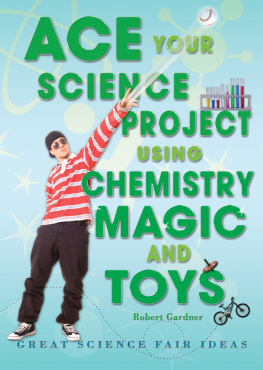

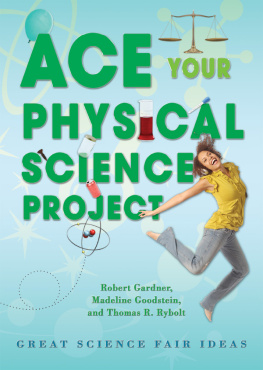
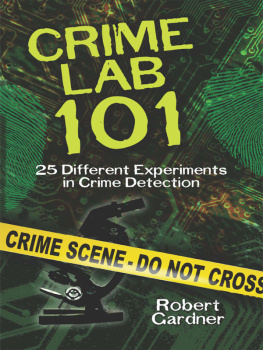
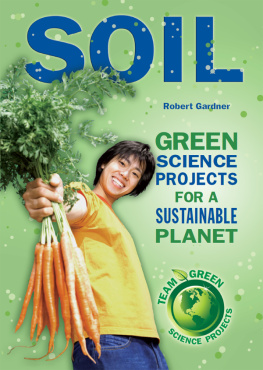
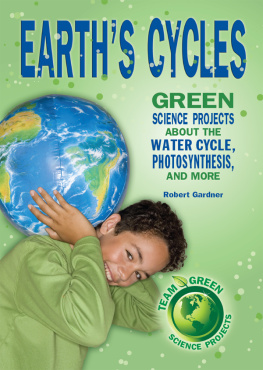
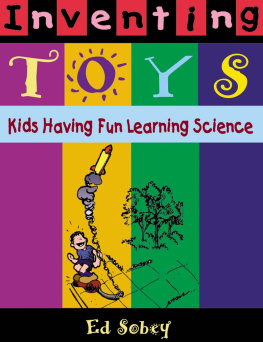
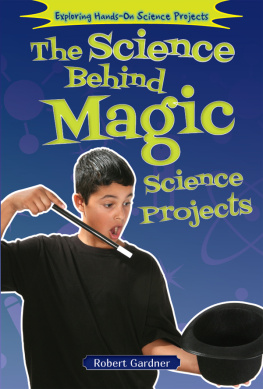
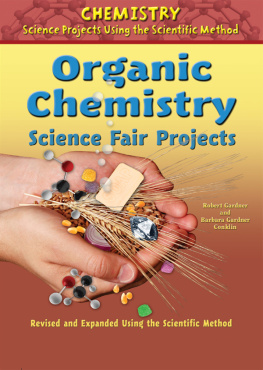
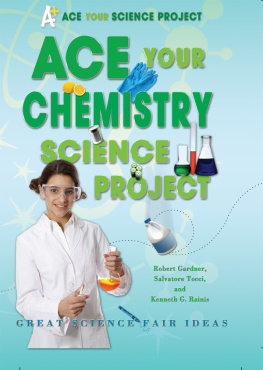
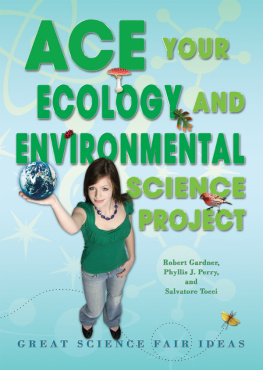
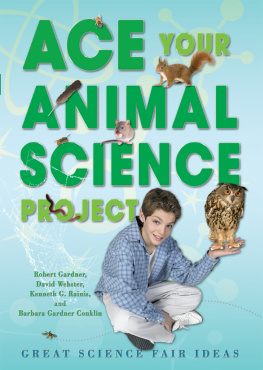
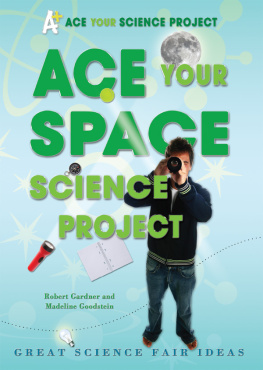
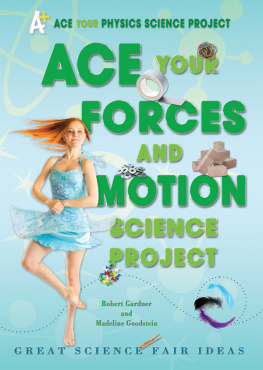
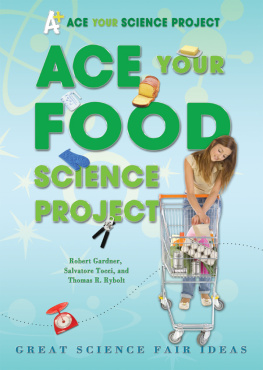
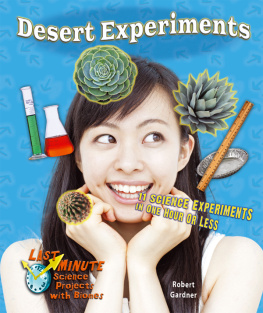
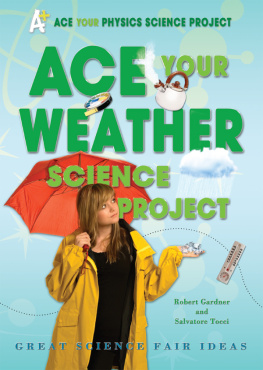

 ) and include a section called Science Fair Project Ideas. The ideas in this section will provide suggestions to help you develop your own original science fair project. However, judges at such fairs do not reward projects or experiments that are simply copied from a book. For example, a model of a toy car, which is commonly found at these fairs, would probably not impress judges unless it was done in a novel or creative way. On the other hand, a carefully performed experiment to find out how the angle of incline affects the cars speed would be likely to receive careful consideration.
) and include a section called Science Fair Project Ideas. The ideas in this section will provide suggestions to help you develop your own original science fair project. However, judges at such fairs do not reward projects or experiments that are simply copied from a book. For example, a model of a toy car, which is commonly found at these fairs, would probably not impress judges unless it was done in a novel or creative way. On the other hand, a carefully performed experiment to find out how the angle of incline affects the cars speed would be likely to receive careful consideration.